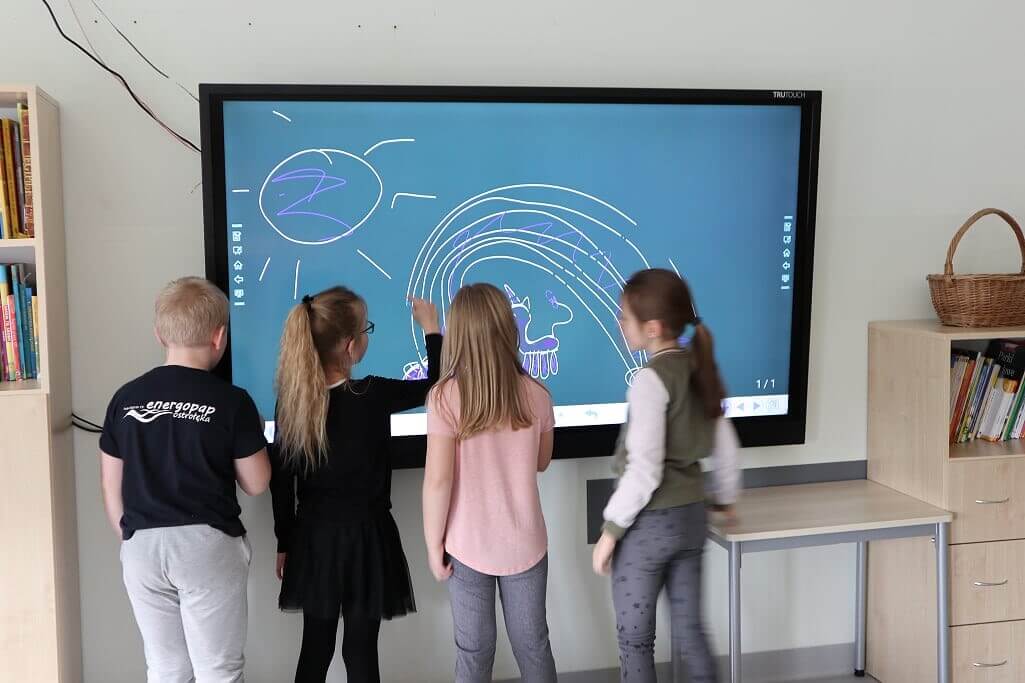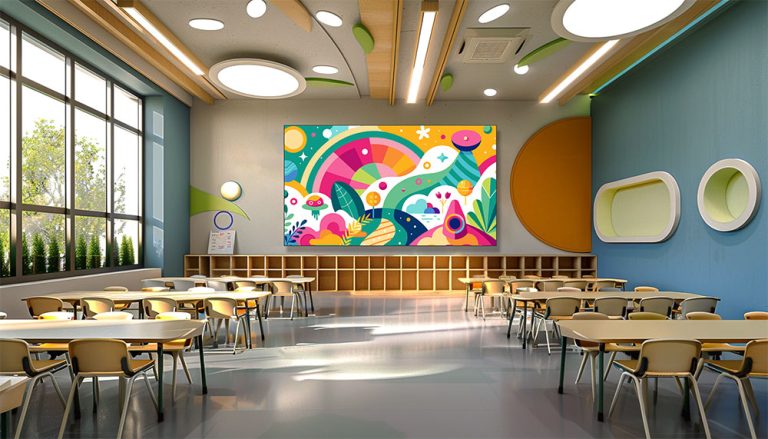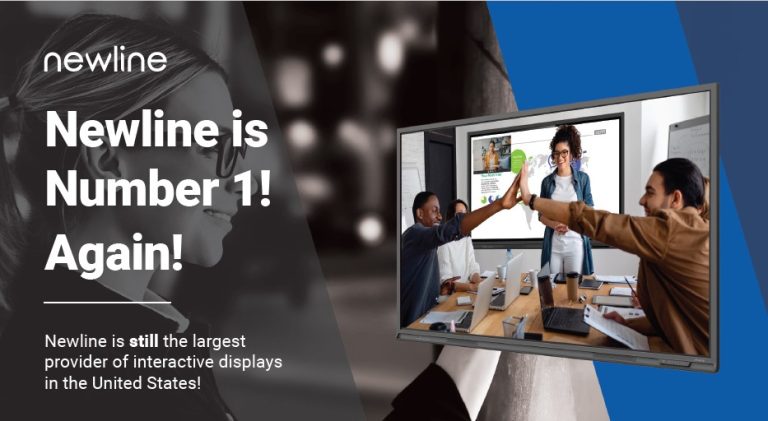One of the most important factors in changing the way schools teach today is finding new and innovative ways to put the power and control of learning into the hands of the student. Educators who have accepted and adapted to this modern way of teaching in a flipped classroom environment, and who are embracing smart interactive technology, have seen their students’ excitement and attention skyrocket. From K-12 to higher education, students excel in a learning environment that keeps them interested and allows them to be more hands-on, more collaborative, and more creative throughout the entire process. To achieve this, schools across the US are embracing the benefits of interactive touchscreens in the classroom.
What is an interactive touchscreen?
Also known as an interactive flat panel display, interactive touchscreens are the new standard display technology for classrooms. Obviously, today’s digital age has made chalkboards and markerboards obsolete, but even standard TVs or projectors are not sufficient in today’s classroom. Not only do they offer engaging collaborative features not available with a standard LED TV, interactive touchscreens are a brighter, crisper, and more efficient alternative to even a standard interactive whiteboard. Interactive whiteboards typically use infrared sensors around the screen to detect touch, and the displayed content is typically projected from a separate projector. Interactive touchscreens on the other hand are an all-in-one compact display with an embedded or onboard operating system and generates content internally without the need for an additional projector. Additionally, interactive touch panels offer true versatility for the classroom with features like intelligent touch, personalized UI, built-in wireless casting, and additional I/O ports to connect additional devices as needed.
Of course, one of the true benefits of having interactive touchscreens in the classroom is being able to cultivate an environment for whole-class engagement and truly put the power of learning back in to the hands of the student. The idea of reversing the roles of the educator and student, known as “Flipped Learning”, was coined 10-15 years ago and generally credited to a small group of educators as well as the founder of Khan Academy, Salman Khan. Since that time, studies like The Effectiveness of the Flipped Classroom (Szparagowski, Spring 2014) have been done to explore and show the true effects that this active learning gives to the student. Ultimately, interactive technology leads to collaborative learning, which in turn gives students the power to be invested in their own knowledge and desire to learn by working to meet the expectations of their peers.
Why are interactive touchscreens important?
So how does this idea of learning coincide with interactive touchscreens in the classroom? In a group setting, the multi-touch capabilities of this interactive technology allow students to huddle together at the screen, share their work, and collaborate. With large-format interactive touchscreens, they can annotate over presentations, make notes collectively, and search and view ancillary materials like detailed maps and images. When students are given the materials ahead of time, they can then spend more time in a peer-to-peer setting, diving deeper into the material and truly developing a broader sense of the lesson. But interactive touchscreens also enhance standard teaching scenarios. Even in a traditional classroom setup with the teacher at the front of the room, students can benefit from the ability to wirelessly project their work to the screen for enhanced discussions with the entire class. This type of smart interactive technology gives the teacher more freedom and flexibility than ever before.
Newline Interactive is committed to leading the way in interactive technology, challenging ourselves every day to develop smart interactive solutions for today’s classrooms and help spark a passion for learning. Our interactive touchscreens work for you, not against you, and the non-proprietary setup of our TRUTOUCH line means you can use the software you know and love. To find out more about putting interactive touchscreens in your classrooms, schedule a demo and see our interactive technology in action.




